ANIMAL DESEXING
Having your pet desexed is not just the responsible thing to do, it can have significant additional benefits for their long term health.
While spaying and neutering are both relatively simple procedures, it’s important to remember that they ARE surgeries.
Our state of the art facility, rigorous pre-operative testing, and Dr Mitry’s years of surgical experience make Clyde Veterinary Hospital the #1 choice for dog, cat, ferret or rodent desexing, wherever you are located in the City of Casey.
SURGERY FOR
Dog Desexing
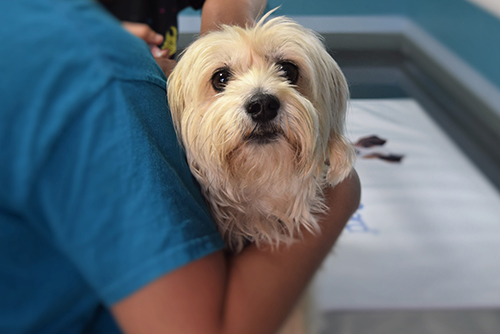
Cat Desexing
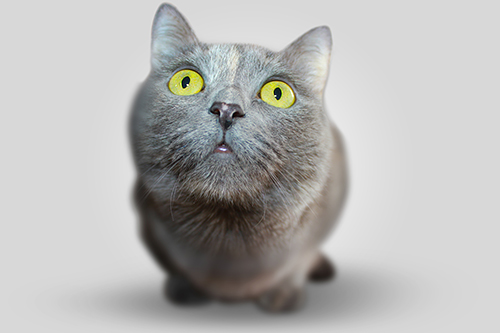
Rabbit/Rodent Desexing
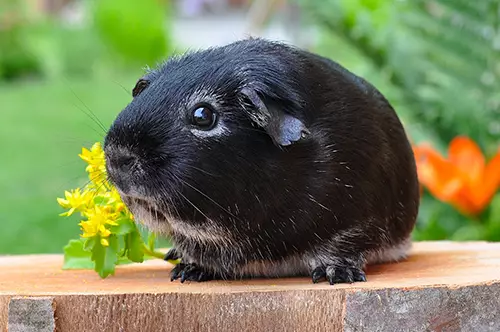
Ferret Desexing
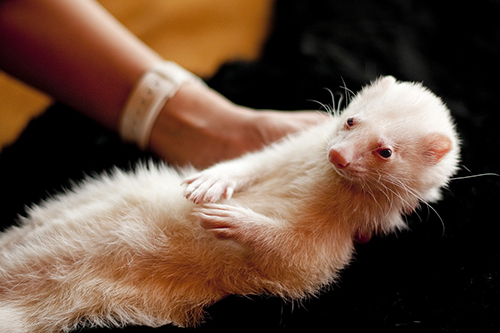


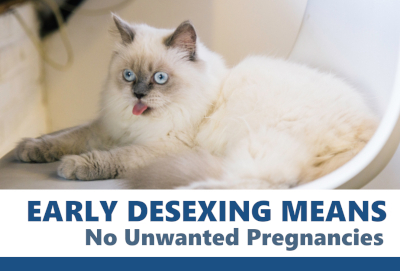
Why Choose Clyde Veterinary Hospital
The Spot for
the Snip
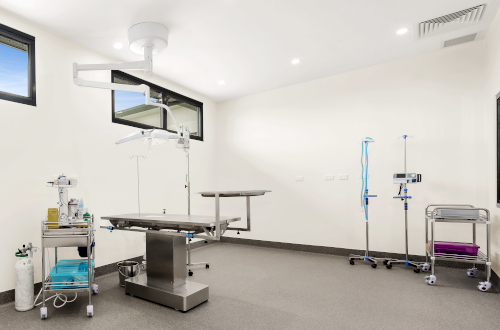
Experienced Surgeon

Easy Finance Available
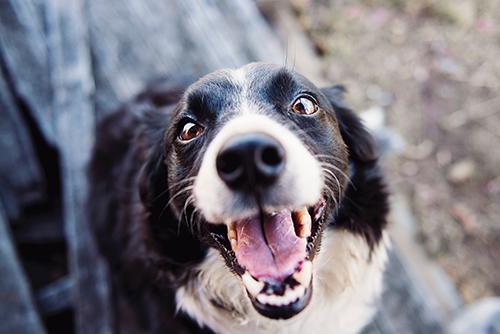
Book Securely Online
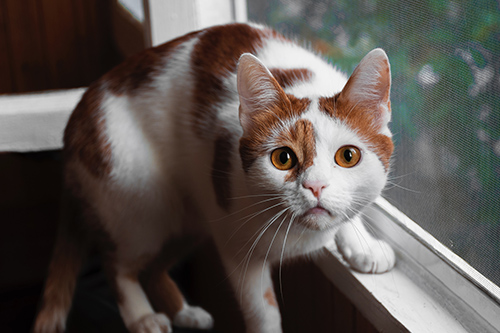
Our clinic boasts the very latest sterilisation equipment, plus positive pressure air conditioning to create a world’s best practice sterile environment for your pets’ desexing surgery.
And with rigorous pre-operative testing you can have total peace of mind in choosing southeast Melbourne’s most state of the art veterinary facility for their delicate operation.
Dr Irene Mitry has years of experience in bone and soft tissue surgery.
And Dr Mitry’s skills in quickly forming human-animal bonds combined with our “stress-free” clinic status ensure that your pet will be returned to you happier and more ready for recovery after their delicate operation.
Clyde Veterinary Hospital offers flexible payment plans for vet bills, with multiple payment solutions to suit all of our customers.
This includes VetPay and GapOnly, with each choice offering different advantages and considerations.
Clyde Veterinary Hospital offers an initial surgical consultation to discuss the surgery and the required postoperative care – another reason to choose southeast Melbourne’s most state of the art animal hospital for your precious companions’ delicate surgery.
FAQs
What’s the Difference Between Desexing, Neutering, Castration and Spaying?
While people commonly use and understand these terms interchangeably, technically speaking, desexing is the general term for the ‘fixing’ of a male or female animal’s potential to bear young through the surgical removal of its reproductive system.
Spaying, (or ovariohysterectomy in vet-speak) is the removal of a female animal’s reproductive organs, while Castration (also known as an orchiectomy), is the removal of a male’s testicles.
In surgical terms, spaying is a considerably more complex operation, involving removal of both the uterus and ovaries, and so requiring incision into the abdominal wall. Removal of the male testicles via castration is obviously a less invasive surgery.
How Long Will it Take My Pet to Recover After Desexing?
Because spaying is a far more complex procedure than neutering, recovery times are naturally longer for female animals, and most require some form of post-operative pain medication for a period of up to 3 days after their surgery.
Will My Pet Require Any Special Treatment While In Recovery?
In almost all cases, your pet will be ready to return home on the day of its operation, as soon as the effects of the anaesthesia have abated.
Desexing animals will usually require some form of post-surgical pain medication. Some female cats or dogs may also be required to wear an ‘elizabethan collar’ to prevent them from aggravating the incision for a period up to 10 days afterwards. However, at Clyde Veterinary Hospital we make every attempt to hide the absorbable stitches to avoid the need for an ‘elizabethan collar’ in most cases. During this period you are advised to keep your female pet relatively inactive and in a quiet, stress-free environment.
While male animals tend to bounce back from neutering quicker than their female counterparts, you should ideally keep a close eye on your pet and attempt to keep them as quiet as possible, avoiding any sort of strenuous sort of play or exercise for a period of usually no more than 5 days after desexing.
What Are The Benefits of Desexing a Dog or Cat?
The reduced potential for unwanted pregnancies leading to stray or homeless animals is obviously one of the core benefits of having your pet desexed.
Research shows that neutered male cats have a significantly reduced tendency to roam their neighbourhood – and when they do, they don’t tend to stray as far from home. Neutered male cats also tend to display fewer ‘territorial’ behaviours such as fighting with other males or ‘spraying’ to mark out their territory.
Male dogs experience significantly reduced levels of testosterone once neutered, which can lead to a significant reduction in testosterone-related problem behaviours such as excessive aggression, unwanted mounting and a tendency to roam.
Both female dogs and cats cease to experience their regular heat cycles once spayed, leading to a reduction in the signs of irritability that usually accompany them.
Desexing has also been shown to significantly reduce the risk of reproductive organ and mammary cancers (the most common form of tumor found in female dogs), pyometra (an infection of reproductive systems that can be life treating for female dogs), prostate disorders and fistulas and can result in an increased lifespan for dogs of up to two years.
Is There Any Risk Associated with Having My Pet Desexed?
Desexing is a surgery which must be performed under anaesthetic, and any anaesthetic procedure carries with it a small degree of risk. At Clyde Veterinary Hospital, we undertake extensive pre-anaesthetic blood and intra-operative fluid therapy to ensure the safest possible anaesthetic and recovery
It’s normal for many animals experience a period of drowsiness after anaesthetic which may last up to a couple of days but is usually significantly less. This is not a cause for concern, but you should take care to keep an eye on your pet during this period as slips or falls can occur due to the animal’s impaired mobility.
Will Desexing Affect My Pet’s Personality?
Overall, you should not notice any significant changes in the nature of your pet after desexing, save for a reduction in the problem behaviours mentioned above.
Should I Have My Dog Spayed While In Heat?
While it is certainly possible to safely spay your Dog while they are in heat, it is usually not recommended. This is because the blood vessels supplying the ovaries and uterus become engorged during this time, leading to the increased risk of complications under surgery. For this reason we recommend waiting until your animal’s heat has passed unless there is a very pressing reason otherwise. Contact us at Clyde Veterinary Hospital if you require more specific advice.
Can a Cat be Spayed While In Heat?
Yes, spaying a female cat or ferret is possible whilst they are in heat.
Are There Any Potential Concerns with Spaying an Animal While Pregnant?
It is certainly possible to have your pet spayed during pregnancy, although this obviously results in the termination of the pregnancy. As a surgery it is no more invasive than a regular spay procedure – although the later stage the pregnancy is, the more complex the surgery comes. Speak to us at Clyde Veterinary Hospital for advice on the best way to proceed if you find yourself in this situation.
What is the Right Age for Desexing Kittens?
While there is no age limitation on having your cat desexed, most usually the operation is performed after 4 months of age, when the kitten begins to reach sexual maturity.
While no specific complications prevent desexing of older animals, bear in mind that as your cat ages, their resilience to surgical procedures also declines, so if you are going to have the procedure performed, it’s best to do so while your cat is younger.
What is the Ideal Age for Desexing Puppies?
Most puppies undergo desexing just prior to the onset of sexual maturity – between 6 and 9 months of age, but there is no set limit on the age at which a mature dog can have the operation performed – bearing in mind that older animals recover slower from surgery and anaesthesia and are more prone to complications.
Furthermore, the benefits of desexing that arise from reduced problem behaviours linked to testosterone and heat cycles tend to be less pronounced in older dogs, which is one reason why we recommend having the operation performed at a younger age.
What is the Most Suitable Age for Desexing Other Animals?
Guinea Pigs are best desexed at around 5-6 months
Hamsters, Rats or Other Rodents at between 4-6 months
Rabbits should also ideally be desexed around 4-6 months
For Ferret females, the ideal age is when they first come into heat.


